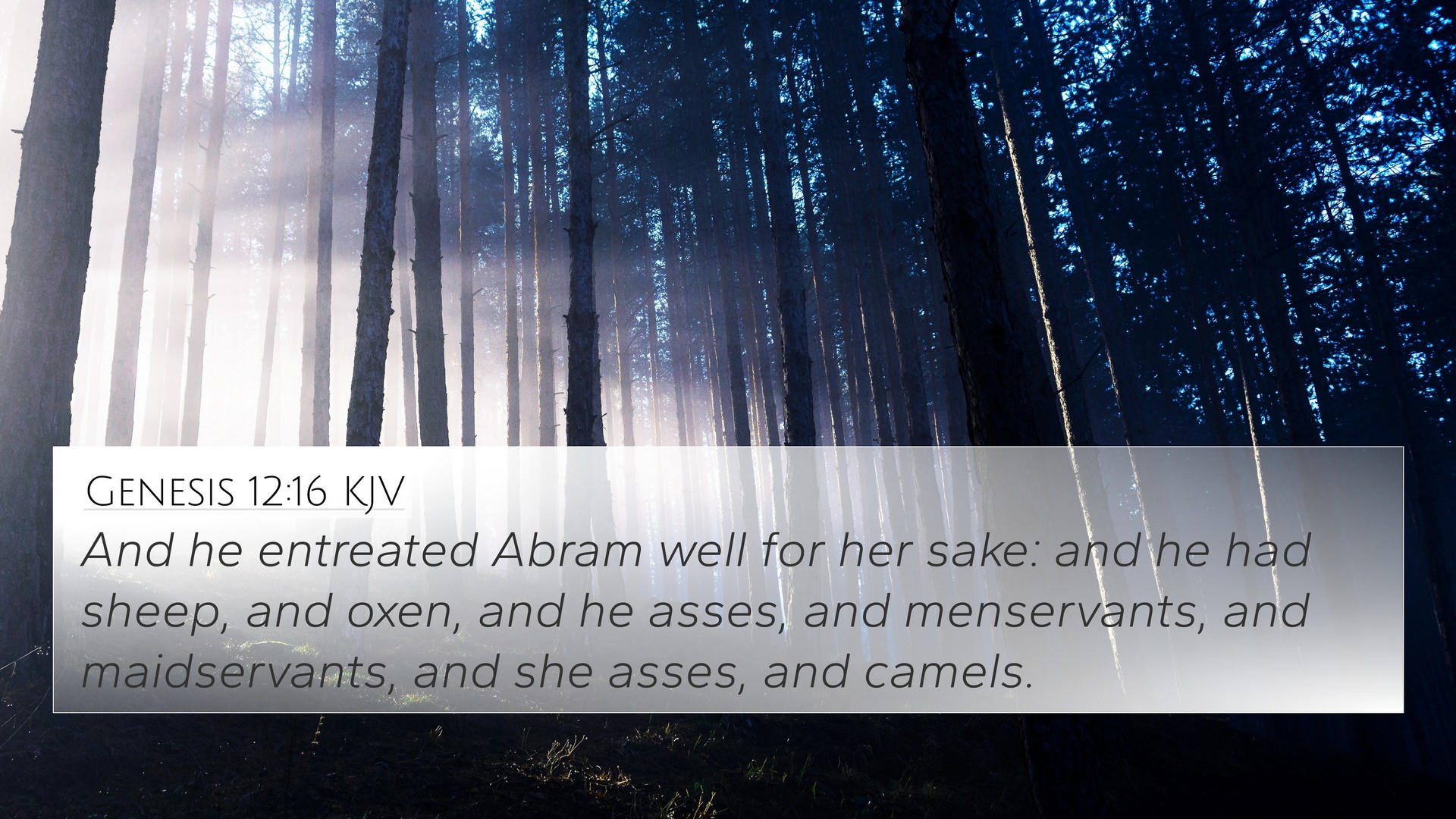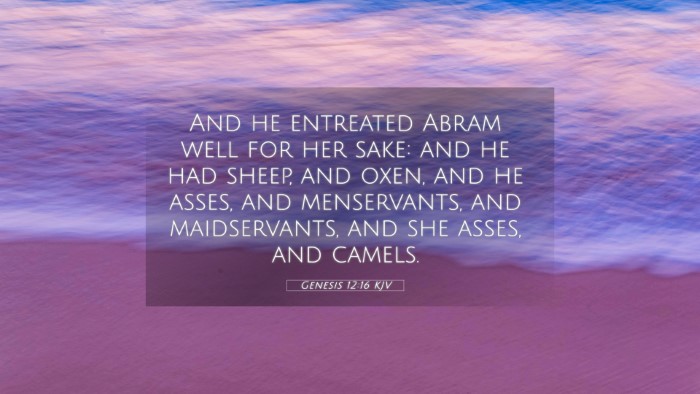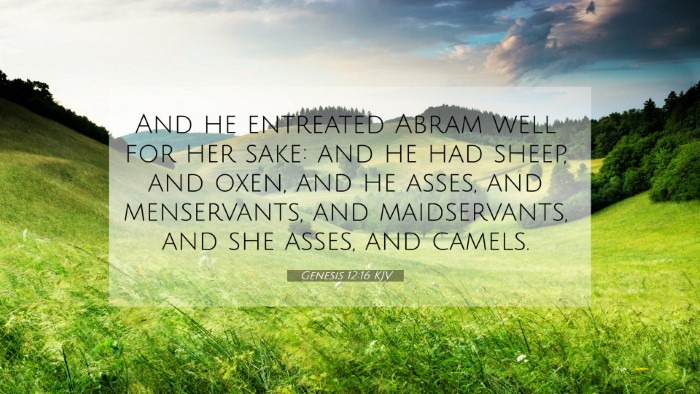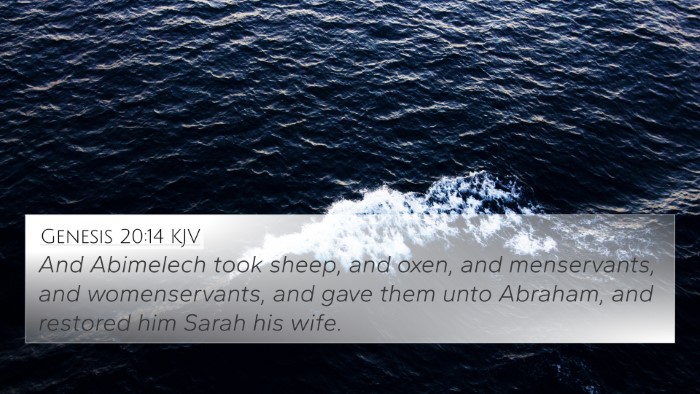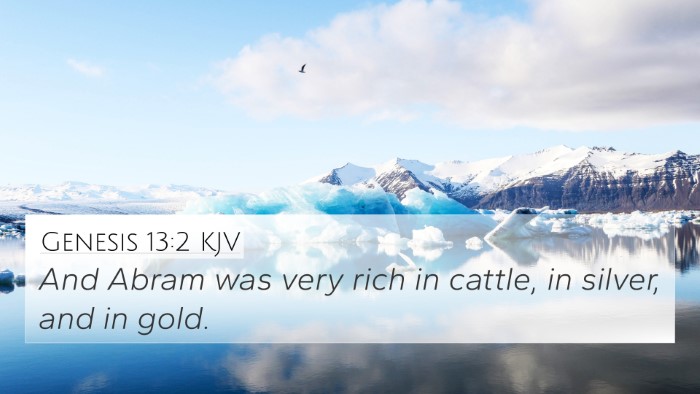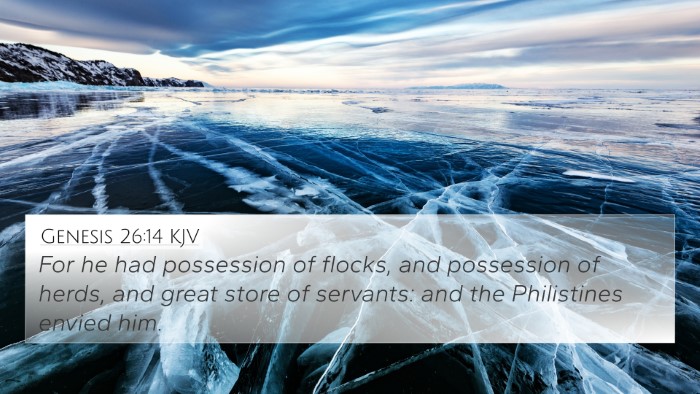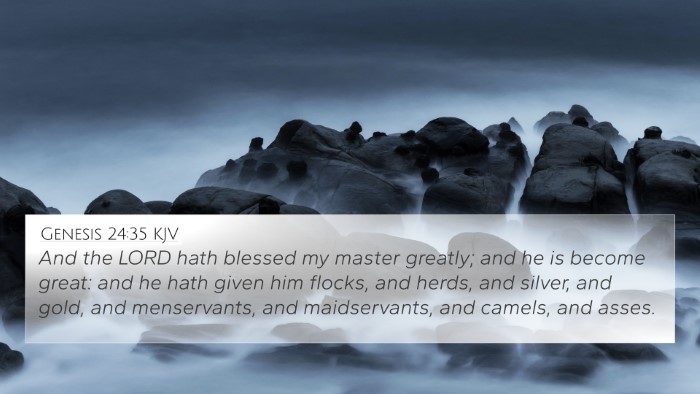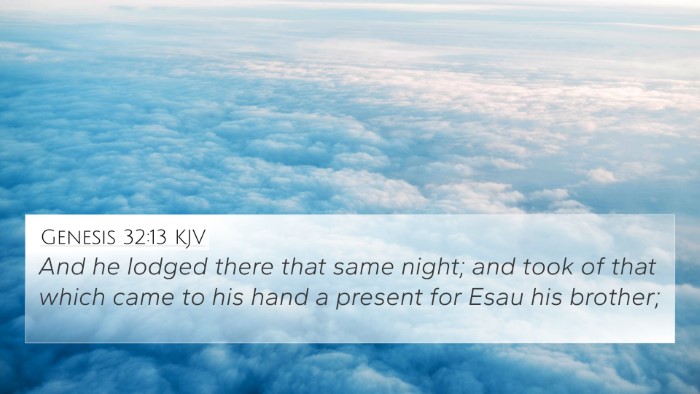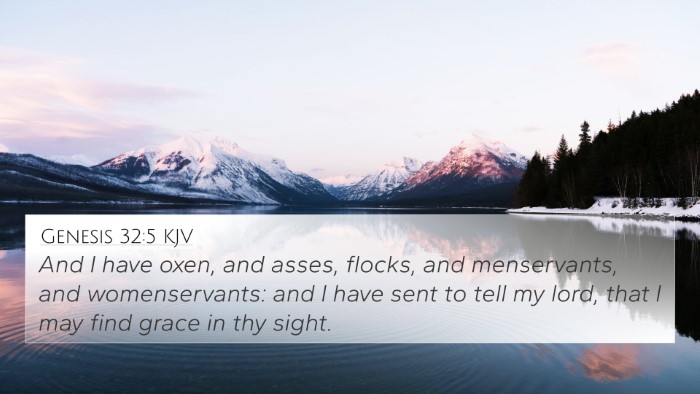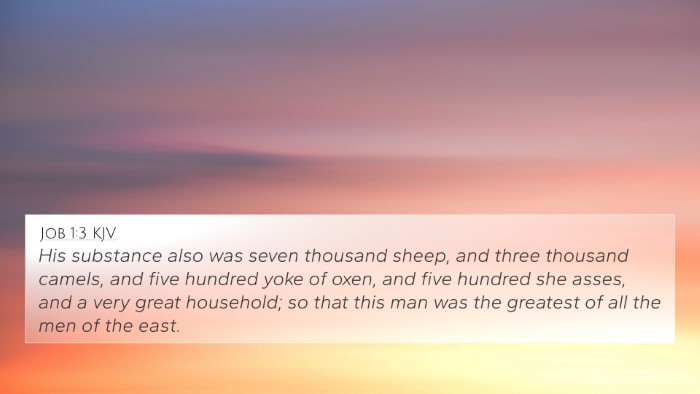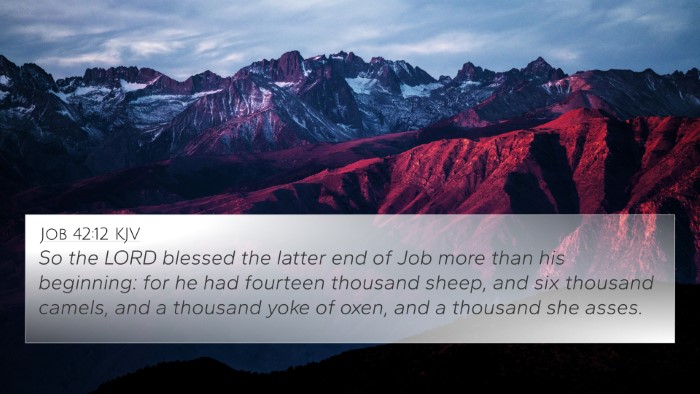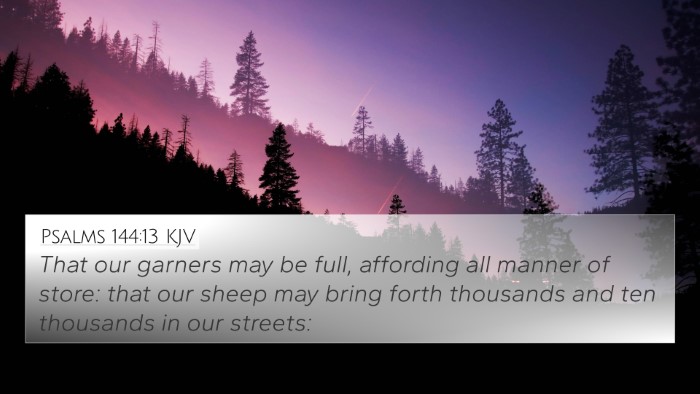Understanding Genesis 12:16
Genesis 12:16 states, "And he entreated Abram well for her sake: and he had sheep, and oxen, and he asses, and menservants, and maidservants, and she asses, and camels." This verse is within the context of Abram's journey into Egypt, where he faced challenges regarding his wife Sarai's beauty. The insights derived from various public domain commentaries such as those by Matthew Henry, Albert Barnes, and Adam Clarke offer a deeper understanding of this scripture.
Context and Background
Abram, later known as Abraham, was called by God to leave his homeland for a new land that God would show him. He embarked on this journey with faith, but upon arriving in Egypt, he encountered unforeseen difficulties that led to the decision to present Sarai as his sister to protect himself.
Commentary Insights
- Matthew Henry: He emphasizes that Abram's actions, though motivated by fear, reveal familial responsibility. This resulted in Pharaoh favoring Abram, who was rewarded with riches, albeit through deceitful means. This invites the discussion of moral implications in times of distress.
- Albert Barnes: Barnes notes the significance of God's providence, illustrating how even through Abram's questionable decisions, God’s protective hand was upon Sarai. This occurrence serves as a reminder of the overarching sovereignty of God, even when human actions fall short.
- Adam Clarke: Clarke examines the social customs of the time, explaining how being perceived as a sister could procure favor in foreign lands, highlighting cultural nuances that define Abram's strategy for survival.
Thematic Connections
This verse helps illuminate several broader Biblical themes:
- God’s Protection: Despite Abram’s deception, God’s sovereignty ensures Sarai is shielded from harm.
- Faith and Fear: The contrast between Abram’s faith in God’s promise and his fear in a foreign land showcases a common struggle in the lives of believers.
- Moral Ambiguity: The implications of Abram’s actions raise questions about ethics and righteousness in desperate situations.
Bible Cross-References
This verse is interconnected with several other scriptures that deepen our understanding:
- Genesis 12:1-3: God's initial promise to Abram which sets the stage for his journey.
- Genesis 20:2: A similar situation where Abraham again calls Sarah his sister, highlighting recurring themes.
- Genesis 26:7: Isaac follows in his father's footsteps concerning the truth about his wife, showcasing generational patterns.
- Acts 7:2-4: Stephen recounts Abram's call, linking new Testament perspectives on Old Testament narratives.
- Psalms 105:14-15: God's protection over His chosen people, illustrating His covenantal relationship.
- Proverbs 21:1: The king's heart being in the hand of the Lord, indicating divine control over rulers.
- Romans 4:3: Faith of Abraham is pivotal to New Testament theology.
Conclusion
In summary, Genesis 12:16 offers layers of meaning about Abraham’s experience in Egypt, his relationship with Sarai, and the providential hand of God in his life. Scholars and believers alike continue to find profound insights into themes of faith, ethics, and divine sovereignty through cross-referencing this verse with others in the Bible. The connections between Bible verses enhance our understanding and provide practical applications in our walk of faith, demonstrating the rich tapestry of God’s Word.
Further Exploration
For those interested in exploring more about how Genesis 12:16 interconnects with other scriptural texts, tools such as a Bible concordance or a Bible cross-reference guide can be invaluable. Engaging in a cross-reference Bible study allows believers to uncover deeper meanings and thematic links across the entirety of the scripture. This method not only enriches understanding but also fosters greater spiritual growth through the application of these interconnected biblical truths.
